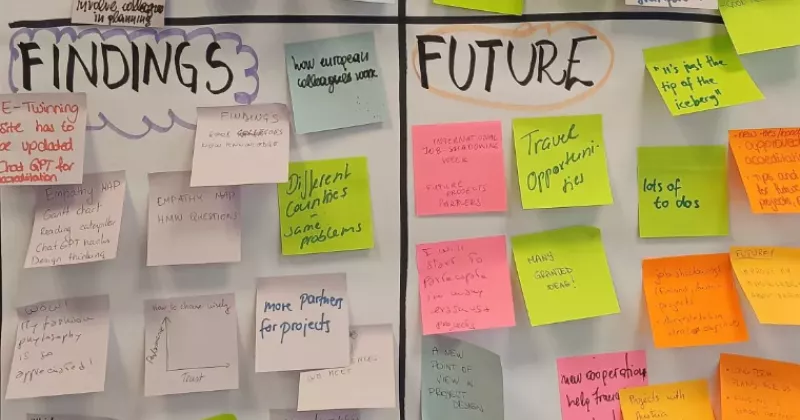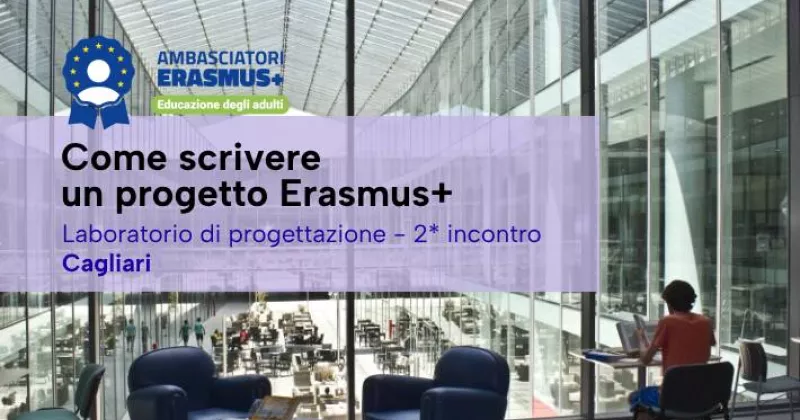Service development through integrating adult basic skills – experiences from the field


Why basic skills?
There is a long list of policies from a wide range of sectors (e.g., education and training, employment, social affairs) that promote the need for flexible basic skills programs embedded in the context in which adults with less sufficient basic skills live, work, and learn. There are a number of important initiatives, policy reforms (e.g., green transformation, digitalisation, etc.) where the efficiency of outreach efforts and service provision is heavily hindered by the fact that these programs cannot involve people who lack or have lower levels of basic skills (e.g., health information, health promotion).
Climbing that mountain is no easy enterprise. Large-scale inclusion can in fact affect the success of any social reform. Nevertheless, designing such programs requires specific expertise and experience, and the results may become evident in the long run.
This article aims at showing an example of how service development for the better inclusion of the given target group (adults with basic skills challenges) can be realised in the form of smaller- and medium-scale projects. The project at hand is the result of a series of consultations on how to integrate adult basic skills elements in the design process in a flexible and meaningful way. The case presented below concerns giving medical information and organising trainings, and outreach programs on key issues around reproductive health (e.g., infertility).
The need for relevant and context-centred basic skills programs
Adult basic skills have long been at the centre of EU policies addressing adult learning and skills in general. The recommendation on Upskilling Pathways clearly states that the lack of sufficient basic skills can lead to complex challenges in societies:
Low-qualified people with fundamental weaknesses in basic skills may constitute a high proportion of the unemployed (in particular long-term unemployed) and other vulnerable groups, for instance older workers, economically inactive people and third-country nationals. Such weaknesses make it more difficult for them to enter or return to the labour market. (Council Recommendation on Upskilling Pathways)
Such a challenge calls for a complex and flexible solution.
The Recommendation acknowledges the need for cooperation and partnerships due to
the fragmentation and complexity of the policy measures in this area often result in a lack of systematic approaches to upskilling the workforce and a lack of awareness of the socioeconomic benefits of doing so. Therefore, coherent policy efforts based on effective coordination and partnerships across policy fields would be welcome.
These public and private partnerships are in the centre of the Recommendation, and they involve entities from education and training, employment, social, cultural, and other relevant policy areas including cross-border and regional cooperation.
The New European Agenda for Adult Learning (2021-2030) recognises the need for a new learning culture that focuses on the relevance of basic skills for all and of continuously acquiring relevant knowledge, skills and competences, at all levels within formal, non-formal and informal learning contexts, throughout one’s life.
The Agenda shares the holistic approach of the Upskilling Pathways focusing on tailor-made adult learning programs and establishing inter-sectoral and multi-stakeholder collaboration, and effective coordination at European, national, regional and local levels, respecting the diverse models of adult learning in the European Union and fully respecting the specific competences of the different policy levels.
The EU Skills Agenda puts an emphasis on shared action involving business, social partners and stakeholders to establish a sustainable competitiveness, social fairness and resilience in the EU.
The member organisations of the European Basic Skills Network have long been dedicated to support policy measures as well as project-based collaborations that provide sustainable, inter-sectoral, and flexible basic skills programs for adults.

Integrating basic skills: a case study for health literacy
As shown above, although policies and policy networks (e.g., EBSN) shed light on the need for cooperation and partnership building, implementing such collaborations and ecosystems often comes down to organisations, and project consortia. Integrating adult basic skills development into newly forming projects (or amending existing ones) is not a new phenomenon. Several literacy-oriented organisations engage in a wide range of initiatives supporting the inclusion of adults with basic skills needs into social matters e.g., healthcare system (via health literacy programs). See for example NALA’s resources to help the public understand health information.
These programs aim at including segments of societies whose social participation is challenged by the lack of sufficient basic skills (i.e., reading and writing, numeracy, basic digital skills etc.) to take an active part in social services.
This article presents a recent initiative that takes a somewhat different approach to basic skills. Together for Fertility is an Erasmus+ Key Action 2 project that provides health-related information on conception, pregnancy, pre- and post-natal care to marginalised segments of the adult population.
Why collaborate?
The project consortium reported that their target group is difficult to reach partially due to their marginalised status in society, but also because they very often have difficulties in literacy, numeracy, data literacy and other basic skills. Making sense of health information can be a challenging task, one that does not come easy to those who have problems with reading and writing. Partners recognised that most of their services, including dissemination and awareness-raising campaigns, fail to reach those vulnerable groups for the above-mentioned reasons, and mostly highly educated people could make use of them. The project partners wished to adapt their outreach and communication strategies, initiatives and support services, including their text-based (online and printed) materials and platforms to better fit the needs of adults who are hard to reach and keep engaged partly due to their challenged basic skills.
Scope of the partnership
EBSN’s project team coordinated by the Secretariat joined the project consortium with a clear goal: to support partners’ reflection on their work’s impact on adults with basic skills needs and to help the adaptation of their services and project outcomes. This support was realised through two main project elements:
-
a staff training course: sensitising and basic skills friendly service development;
-
booklet on how to communicate health information to citizens with lower levels of basic skills (reading, writing, numeracy, digital skills).
The two elements complement each other. The training provided an opportunity for the consortium members to learn about basic skills needs in adulthood, main types of provision and tools for partner organisations in the project with which they can address health literacy.
Staff training on adult basic skills
The training course was co-designed by the partners in the project. EBSN’s project team conducted semi-structured interviews with each partner organisation’s representatives to learn about their specific challenges with regard to basic skills needs and their target group. The main outcomes of the interviews were as follows:
-
Although each organisation is a national NGO with a fairly wide inclusion rate in their programs on medical and family-related themes (e.g., infertility, reproductive health, parental rights, etc.), it is generally more challenging to involve and engage adults with marginalised socio-economic status.
-
Project partners came to realise that those with disadvantaged backgrounds very often struggle with reading, writing, numeracy and basic digital tasks. Most interview partners also agreed that this challenge is, to a great part, due to the fact that the medical themes and health-related information are hard to grasp for these people.
-
During the interviews, partners reflected on their own role and capacity to help adults in the target group with basic skills challenges by becoming more "literacy friendly" as an organisation and creating outreach strategies that address people with basic skills needs too.
The training course’s actual design was backed up by the interview outcomes. The EBSN project team drew up a preliminary detailed program that was discussed and then approved by the project consortium. The training agenda delivered through four consecutive days covered the following themes.
-
Understanding the challenges: What are adult basic skills and how does it feel like to live with these challenges? (Interactive activity based on personal narratives)
-
What is health literacy and how does one meet health information in everyday life?
-
How to design successful outreach strategies to engage adults with basic skills needs? (Showcasing best practices from EBSN Members)
-
How to build partnerships for greater inclusion of people with basic skills needs? (Interactive group activity to design a partnership-building plan for each partner organisation in the project)
-
How to use communication channels more effectively for the benefit of adults with basic skills challenges? (Reflective activity for re-thinking social media campaigns, website design with actual tools involving plain language, design tips, and methods to become a more literacy-friendly organisation etc.)
-
Learning about key issues e.g., the social stigma against basic skills issues, intercultural communication, digital gap, etc.
-
Exploring learning and communicative approaches: participatory learning and non-directive communication (reflective and interactive sessions)
The training course was highly reflective and interactive since the main aim of it was to serve as an early onset input for the upcoming project outcomes. The training evaluation survey revealed that the key themes and tools were relevant for the project partners, and it fitted their organisational needs while also serving as a meaningful learning event addressing basic skills for adults with a focus on health literacy and generally communicating health information better.
Booklet on integrating health literacy
During the project’s planning phase, the EBSN project team proposed to sum up the main experiences and themes covered during the staff training course. The booklet, thus, serves as a compass to better understand the basic skills challenges of adults and how organisations in the project can address these issues through their printed and online materials, communication channels and platforms, outreach, and stakeholder events. You can download the booklet here.
Conclusion: efficiency and sustainable impact via investing in basic skills
The main aim of this article was to present an example for including adult basic skills elements in a project that has a different primary goal. As presented in adult learning policies, basic skills trainings should by highly relevant to learners embedded in the very context their life evolves in.
Hence, it is up to projects, organisations, and networks close to people to take on the mission to – whenever it is relevant – apply basic skills friendly approach in their service or training development, and include basic skills related issues in their project.
It can improve efficiency in the project’s communication and overall impact on society as it can widen the project’s focus to people with marginal socio-economic status too.
|
Examples for projects that could benefit from a basic skills element
|
As shown in the case study, such a collaboration needs careful planning potentially involving a research phase in which the actual scope of basic skills intervention is identified and understood by each partner. In the implementation phase, it is vital to engage in continuous reflection with some feedback loops through which the basic skills elements in the project can be adapted and kept relevant to actual needs.
Involving a basic skills element in projects where it may be relevant cannot solve all issues but can represent a great step towards turning adult basic skills policy directives and recommendations into reality.
Besides one-time interventions organisations having a stake in social, employment, and educational initiatives may find it beneficial to integrate a basic skills-oriented approach to their services that can lead to higher efficiency in their outreach programs and a more sustainable impact on the field.





Nevis mācīt, bet izglītot caur pakalpojumiem
Interesanta pieredze, kā attīstīt pamatprasmes netiešā veidā. Nevis veidojot mācību pakalpojumu, bet veidojot nozares, jomas paklpojumus tā, lai tos izmantojot, uzlabotos klientu prasmes. Vairā jāstrādā ar uzņēmējiem, lai attīstītu šādu pieeju.